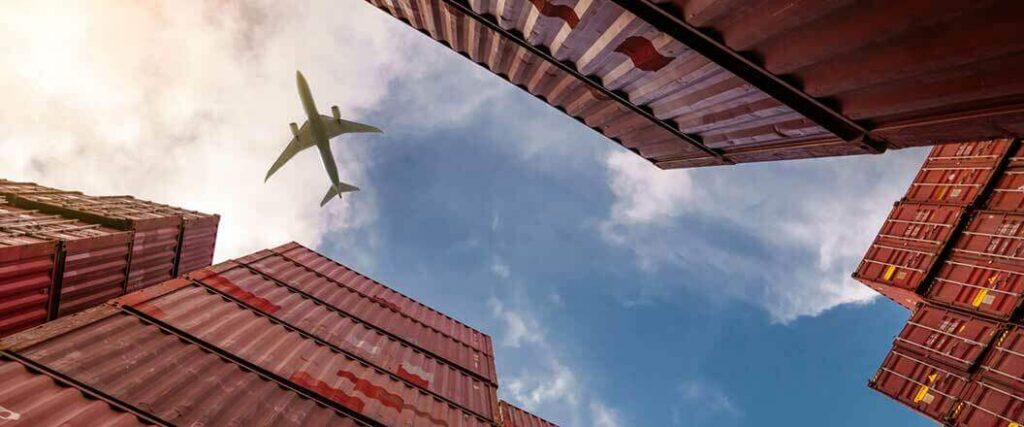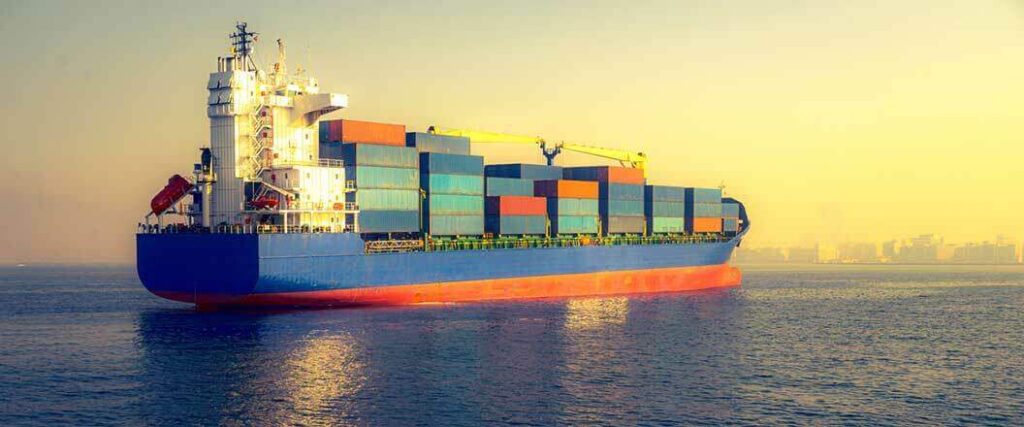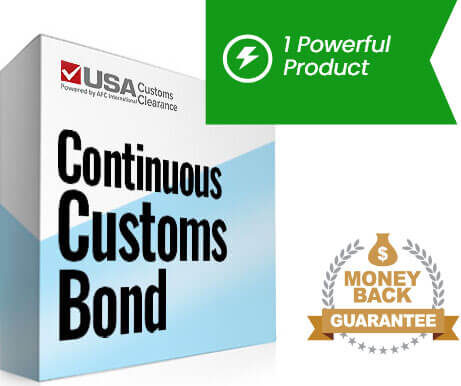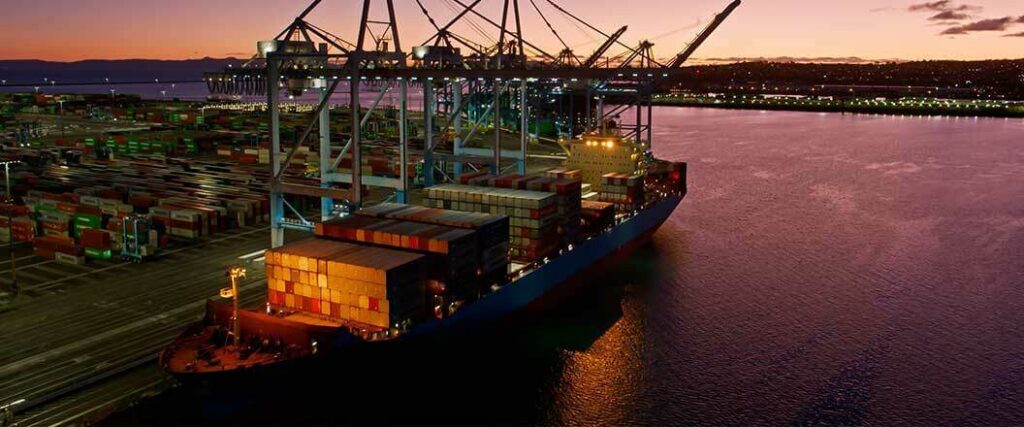
If you plan to import goods into the USA, the term 'single entry bond' (SEB) has probably shown up on your radar. Customs bonds are required by U.S. Customs and Borders Protection (CBP) to ensure payment of taxes and duties when your shipment reaches its port of entry. However, you might find a single entry bond isn't the most efficient choice for your transaction. In our experience as customs clearance specialists, deciding if a single entry bond is right for you should be based on how often you plan to import goods.
Key takeaways:
Let’s take a closer look at how single entry bonds work and how they can help you in your importing endeavors.

A single entry bond, also called a single transaction bond, is used to cover customs costs of a single shipment through a designated US port. It functions as a sort of contract between the importer, the surety company that issues the bond, and CBP. Having this bond in place guarantees payment of all duties, taxes, and other customs fees, which expedites the clearance of imported shipments.
Once a single entry bond has been acquired, the goods have to move through the port of entry that has been decided upon. Importers cannot change how or where their shipment comes in after it is put in writing.
The single entry bond type is a good fit for importers with occasional shipments, usually less than four times a year. It’s also sufficient for importers bringing in low-cost goods.
Frequent, higher-cost shipments will usually require a continuous bond, which we’ll discuss later in the article.
No, a customs bond is not required for all imports into the USA. Bonds shouldn’t be needed in the following cases:
There are some exceptions to the $2,500 rule. For example, commodities that are overseen by federal agencies such as the Food and Drug Administration (FDA) or the Bureau of Alcohol, Tobacco, Firearms and Explosives (AFT) will require a bond regardless of the overall value. Such commodities will also increase the cost of the bond.

The minimum cost of a single entry bond may be no less than $100.00 per CBP regulations. Beyond that, there’s no flat price for a single entry customs bond. The cost is determined by factors such as the commodity’s HTS code and the country from which it’s being shipped. However, there are some general guidelines you can follow to estimate how much your bond will cost.
One of the most common strategies for calculating the price of a single entry bond is on a per-thousand dollar basis with a separate, flat processing fee. For example, let’s say you’re importing furniture and home furnishings from overseas.
The total price you paid to the supplier was $65,000 and your duty rate is five dollars per thousand dollars spent. This gives us estimated duties of $3,500 and a total shipment value of $68,500. Since the shipment is traveling by ocean freight, an Import Security Filing (ISF) bond will also be required.
In this hypothetical scenario from our customs bond expert Amy Mileham, the calculation would be as follows.

Keep in mind that this is an estimate based on a common pricing formula. Before you purchase a single entry bond, your broker will give you a final price based on information you provide to them. Most, if not all, of that information will be located on documents that are required for your shipment to clear customs.

Importing Starts With a Contract.
You Must Pay Import Duties & Taxes for your Goods.
Any procedure that involves government oversight will come with no shortage of paperwork, and importing is no exception. Documents that you’ll need in order to obtain a customs bond include:
Heavily regulated goods may require further paperwork to clear customs. For a more detailed breakdown, take a look at our article on customs documents here.
To provide greater clarity about what a single entry bond is, we can look at how it contrasts with a continuous entry bond.
While a single entry bond only covers one transaction, a continuous bond covers shipments on an ongoing basis. An importer using an international carrier to transport products can secure a continuous bond that allows shipments to arrive through any U.S. port for a year. This makes it the perfect bond for frequent importers.
The price of a continuous bond varies for the same reasons as the single entry option, but the price per thousand dollar increments is usually lower since the continuous bond is most frequently applied to consistent, high-value shipments.
A good rule of thumb to keep in mind is that if you plan to import more than five shipments over the course of a year, you’re probably better off with a continuous bond.

To illustrate the different situations in which each bond type would be most useful, take a look at these examples.
Let’s say you run a business selling high-end gardening and landscaping equipment. You’re set to receive multiple shipments over the course of several months to prepare for the busy spring gardening season. Each shipment is worth tens of thousands of dollars.
In this scenario, a continuous bond saves you money in the long run due to the recurring, high-value shipments. It also saves time since you only have to apply for the bond once in a 12-month period, where using a succession of single entry bonds would be an unnecessary time sink.
For our second scenario, you run a small boutique that occasionally imports handbags and other small, relatively inexpensive accessories. The commercial value of the shipment is $2,500 or more, so you’ll need a bond. However, you don’t plan to do this more than once or twice a year. For this isolated, relatively low-value, transaction, a single entry bond will cover your needs and be the most cost-effective option.
For more information on the different types of bonds, check out our complete guide to different types of customs bonds.
Once you’ve determined that you need a customs bond, the next step is to purchase one. This is best accomplished by working with a licensed customs broker. You’ll need to complete an application process prior to purchasing. Upon approval, you’ll be able to purchase and use your bond within a couple of days.
By partnering with an experienced broker, you can avoid thousands of dollars in fines and ensure that your shipments clear customs smoothly and quickly. If you’re looking for such a broker, you’ve come to the right place.
Whether a single entry or continuous bond works best for you comes down to two factors:
No matter which bond you need, the licensed customs brokers at USA Customs Clearance can work on your behalf to handle all the behind-the-scenes work related to a bond. We’ll make sure that your shipments don’t encounter holds or delays due to bonds each and every time.
Besides customs bonds, we also offer services such as:
Give us a call at (855) 912-0406, or contact us online today. We have the know-how to make sure you get the right customs bond for your imported goods.
 Copy URL to Clipboard
Copy URL to Clipboard

Google is changing how it surfaces content. Prioritize our high-quality guides and industry-leading coverage in search results by setting usacustomsclearance.com as a preferred source.
I have two (electric) race cars that are in the USA (exported from UK last year for some races) under ATA Carnet. They now want to stay in the US for an additional 12 months for next season so I've been told we can convert the Carnet entry to a TIB for this purpose. Would SEB be applicable or is this different to a TIB? Value of goods approx $880K.
if your goods are not valued less than 2500 dollars and not imported for sale or sale on approval, without payment of duty with the intent to export or destroy the goods within a certain period of time not to exceed three years from the date of importation you are better suited for a Temporary Importation under Bond
Hi, I have a shipment going into the US from Canada and then our courier will bring back the shipment when the rework is complete. We do not have a Broker to clear this shipment when it arrives at US customs at this time. Can we require to use an SEB so that the shipment will not be delayed at customs?
I think your better option would be a temporary import under bond if your goods are not imported for sale or sale on approval, without payment of duty with the intent to export or destroy the goods within a certain period of time not to exceed three years from the date of importation.
Hi,
I need to know more about how to set up a bond for my company. Thank you!
Hi Ada,
We can absolutely help you with this! One of our customs experts will reach out to you shortly. We look forward to assisting you!